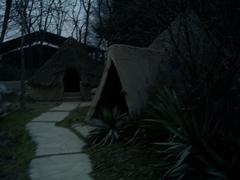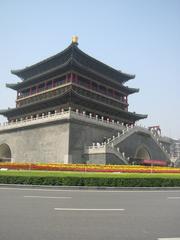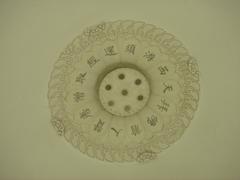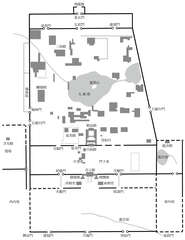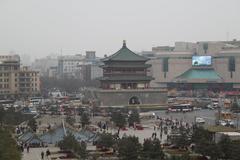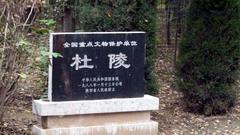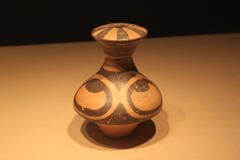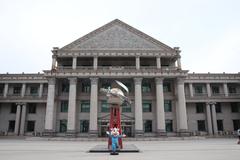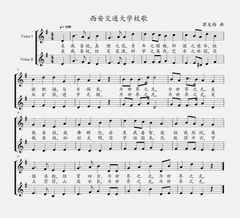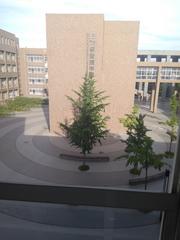Second Affiliated Hospital Of Xi'An Jiaotong University
Second Affiliated Hospital of Xi’an Jiaotong University: Visiting Hours, Tickets, and Visitor Information
Date: 04/07/2025
Introduction
The Second Affiliated Hospital of Xi’an Jiaotong University (XJTU), centrally located in Xi’an, Shaanxi Province, is a cornerstone of healthcare, medical education, and research in Northwest China. Established in 1952 as a clinical teaching base for Xi’an Medical College, it has grown into a leading tertiary referral center, renowned for its advanced clinical specialties, research achievements, and patient-centered services. Its strategic location at No. 157 Xi Wu Road offers convenient access for both local residents and international visitors and places it near many of Xi’an’s cultural landmarks (TravelChinaGuide, The Helpful Panda).
This comprehensive guide covers the hospital’s history, academic and research milestones, infrastructure, visitor services, and practical tips to optimize your visit.
Table of Contents
- Introduction
- Historical Overview
- Academic Achievements and Research Contributions
- Infrastructure and Facilities
- Visiting Hours, Appointments, and Visitor Information
- Accessibility and Travel Tips for International Visitors
- Notable Milestones and Recent Developments
- FAQs
- Conclusion
- References
Historical Overview
Founding and Early Development
Founded in 1952 as a clinical teaching base for Xi’an Medical College, the hospital was part of a nationwide initiative to expand medical education and healthcare services in Northwest China. Initially, it focused on core disciplines like internal medicine, surgery, and obstetrics, with a modest staff comprising local and transferred physicians. Its central urban location provided easy access for patients and medical trainees (TravelChinaGuide).
Expansion and Academic Integration
In the 1960s and 1970s, the hospital broadened its scope by adding departments such as pediatrics, neurology, and infectious diseases. The introduction of postgraduate education and research programs solidified its role as a major teaching hospital and contributed to the development of regional healthcare.
By the 1980s, the hospital had become one of Shaanxi Province’s largest medical centers, with hundreds of beds and numerous specialized clinics. Its affiliation with Xi’an Jiaotong University attracted leading medical professionals and facilitated the adoption of advanced technologies.
Modernization and Technological Advancements
The 1990s and 2000s marked a period of rapid modernization, with the construction of new inpatient towers, outpatient clinics, and research laboratories. Capacity expanded to over 1,000 beds. The hospital introduced advanced diagnostic equipment, such as MRI and CT scanners, and became a leader in minimally invasive surgery and other specialties.
International collaborations flourished, and the hospital became a designated research center for cardiology, oncology, and other key disciplines. It played a critical role during health crises like the SARS outbreak and the COVID-19 pandemic, leading patient care and public education efforts (TravelChinaGuide).
Role in Regional Healthcare and Public Health
As a tertiary referral center, the hospital serves patients from throughout Shaanxi Province and neighboring regions, offering specialized treatment for complex conditions. Its 24/7 emergency department and leadership during public health emergencies have earned national recognition and trust.
Academic Achievements and Research Contributions
The hospital is a primary teaching site for Xi’an Jiaotong University’s medical students and is recognized for its research productivity, particularly in cardiovascular disease, oncology, infectious diseases, and medical imaging. Its Orthopedic Center is internationally known for the “Jiaotong Solution” in minimally invasive techniques (Nature Index, CRI News). Faculty members frequently publish in respected journals and have received prestigious awards for scientific innovation.
Infrastructure and Facilities
The hospital operates under a “one hospital, four districts” model, including the main hospital at 157 Xi Wu Road and branches such as Daming Branch, Qin Han Xin Cheng Hospital, Lin Tong Wei Bei Hospital, and Bao Ji Pan Long Hospital (hospital profile). Its facilities include:
- Centers for cardiology, oncology, orthopedics, and reproductive medicine
- Modern surgical suites and advanced diagnostic labs
- Electronic medical records and telemedicine services
- Multilingual signage and translation services
- Parking and wheelchair-accessible infrastructure
The hospital is easily accessible via public transit, including metro and bus lines.
Visiting Hours, Appointments, and Visitor Information
Visiting Hours
- General visiting hours: 8:00 AM – 8:00 PM daily
- Certain departments or wards may have specific restrictions; check with the hospital or department in advance.
Appointments and Registration
- Appointments can be made online via the hospital website, by phone, or in person.
- Walk-in consultations are accepted but may entail longer waits, especially for specialist clinics.
- Upon arrival, bring valid identification (passport or Chinese ID card) for registration.
- Registration fees are required; while some international cards may be accepted, cash or UnionPay cards are recommended (The Helpful Panda).
Accessibility and Services
- Parking facilities available for visitors and patients
- Wheelchair ramps, elevators, and accessible restrooms
- English-speaking staff in key departments; translation services provided
- Emergency department operates 24/7 (contacts: 029-87679000 / 029-87679323)
Accessibility and Travel Tips for International Visitors
- Located near major attractions such as the Bell Tower and Muslim Quarter
- Accessible by metro, bus, taxi, and ride-hailing apps
- Bring all necessary documents and consider translation apps or arranging a local guide for convenience
Notable Milestones and Recent Developments
- Establishment of an international patient center
- Implementation of digital health technologies
- Expansion of minimally invasive surgical programs
- Active community health outreach and free screening programs
FAQs
Q: What are the hospital’s visiting hours?
A: 8:00 AM to 8:00 PM daily, though departments may vary.
Q: How do I make an appointment?
A: Appointments can be scheduled online, by phone, or at the hospital’s registration desk.
Q: Is parking available?
A: Yes, onsite parking is provided.
Q: Are there English-speaking doctors?
A: English-speaking staff are available in several departments, and translation services are provided.
Q: What payment methods are accepted?
A: Cash and UnionPay cards are recommended; some international credit cards may be accepted.
Conclusion
The Second Affiliated Hospital of Xi’an Jiaotong University is distinguished by its blend of historical legacy, medical innovation, and patient-oriented care. With a robust academic affiliation, advanced research, and state-of-the-art facilities, it continues to be a beacon for healthcare in Xi’an and Northwest China. Visitors and patients are encouraged to leverage multilingual services, online appointment systems, and accessibility features for a seamless experience. Exploring nearby cultural sites can further enrich your visit to this dynamic city.
For ongoing updates, appointment bookings, and more information on healthcare and travel in Xi’an, download the Audiala app and follow official channels.
